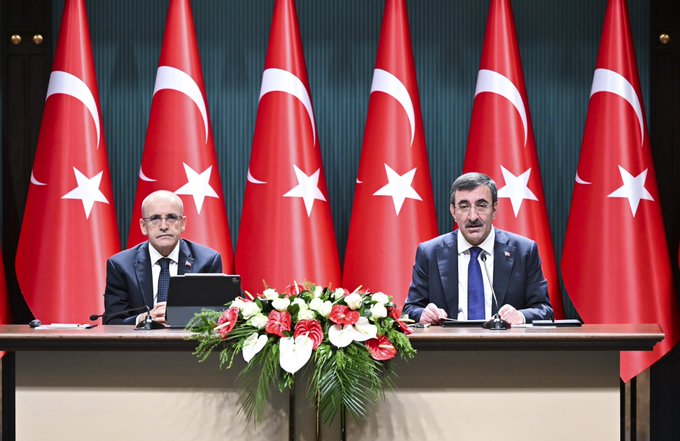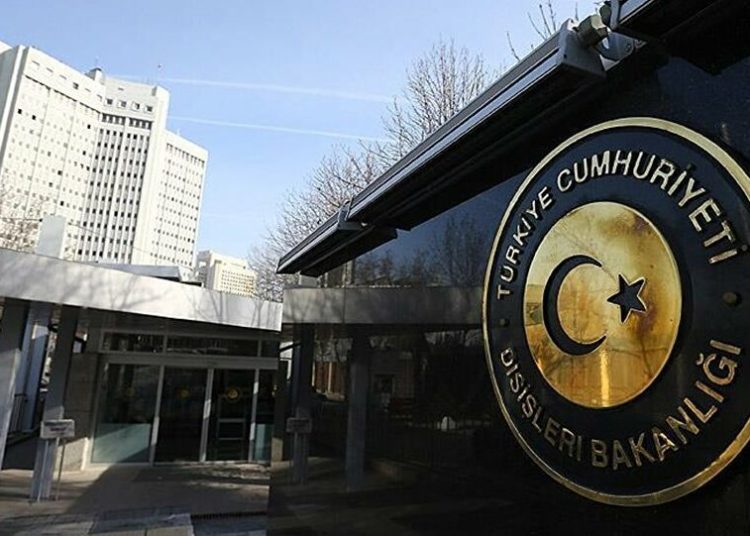Levent Kenez/Stockholm
The Turkish government announced measures to reduce public spending through a directive issued on Monday. Accordingly, the purchase of new vehicles, buildings, furniture and equipment in the public sector will be suspended for a period of three years. Restrictions will be imposed on the recruitment of personnel in the sector. Temporary assignments abroad will be limited, and there will be constraints on promotional and representational activities overseas.
According to measures announced at a press conference by Vice President Cevdet Yılmaz and Finance Minister Mehmet Şimşek, all public administrations and personnel are obliged to abide by cost-saving measures without exception. Şimşek said administrative sanctions and fines would be imposed in the event of non-compliance with the savings directive but did not provide any details on the penalties for such behavior. Furthermore, Şimşek added that in the coming days initiatives concerning public tenders, tax equity and efforts at preventing informal economic activity would be announced.

One of the noteworthy aspects of the savings measures announced is a review of offices in foreign countries run by several ministries. This in general entails ministries reducing their staff abroad, cutting down on expenses and potentially closing inactive offices.
According to Şimşek, state organizations operating abroad will not under any circumstances purchase or lease office buildings, lodgings, camps or nurseries as well as educational, recreational and similar social facilities. New construction is also prohibited. Vehicle acquisition will be based on a needs analysis, and no new vehicles will be acquired except in emergency and demonstrably necessary situations.
Text of Finance Minister Şimşek’s presentation during the press conference:
State institutions are being urged to limit temporary assignments abroad and to keep such assignments to a minimum. The Ministry of Finance has decided that expenditures for temporary assignments overseas should not exceed the budget allocation previously set and should not be increased with additional appropriations.
One of the largest items in Turkey’s foreign expenditures is the expenses of the Maarif Foundation, a government-funded entity that serves as President Recep Tayyip Erdoğan’s long arm abroad in providing educational services. In 2024, the Maarif Foundation’s budget was TL 5.702 billion.
According to a recent report by the Ministry of National Education, several institutions such as the Maarif Foundation, the Directorate for Turks Abroad and Related Communities (YTB) and the Turkish Cooperation and Coordination Agency (TİKA) were found to be operating in overlapping fields with the ministry’s Directorate General, particularly abroad. The report highlighted the need to enhance communication with these entities and redirect efforts to different areas to ensure a more effective and efficient utilization of state resources.
It’s been noted that some foreign expenditures are covered by the presidential discretionary fund, which increased fivefold on an annual basis in February, reaching 1.897 billion lira. Last year spending under this category amounted to 373.3 million lira. Expenditures from the discretionary fund reached 2.182 billion lira in the January-February period of 2024. This marks a significant increase compared to the same period last year, when expenditures stood at 561.9 million lira, representing a 238 percent surge year-on-year.
The new 2024 budget allocates TL 31.4 billion (approximately $975 million) to the Ministry of Foreign Affairs. The breakdown of this budget indicates that approximately 55 percent will be allocated to foreign mission expenses, while 31 percent is designated for contributions to international organizations as well as the salaries of teachers and religious officials stationed abroad. Additionally, a budget of TL 4.6 billion, with TL 4.2 billion specifically allocated for participation in EU programs, has been submitted for the ministry’s directorate for EU affairs.
A study by Nordic Monitor indicates that the directive issued on Monday bears a striking resemblance to a similar austerity plan issued by Erdogan’s government in 2021. The wording in both circulars is nearly identical, suggesting continuity in austerity measures.
The 2021 directive mandated stringent austerity measures across public institutions and organizations, going as far as to prohibit the personal use of airline bonus miles. With the Turkish lira already experiencing record lows, it is anticipated that Turkey’s official representations abroad will bear the brunt of these measures.
It also involved a reduction in the number of civil servants assigned by Turkey overseas. Public entities are instructed to minimize staffing levels, with the implication that some agencies may undergo mergers to streamline operations and maximize efficiency.
In the public sphere, there’s growing criticism, particularly regarding the excessive number of vehicles and guards in Erdogan’s security detail, as well as the existence of private mansions and palaces designated for his use in many cities. The opposition is demanding that savings in these areas be made a priority.












